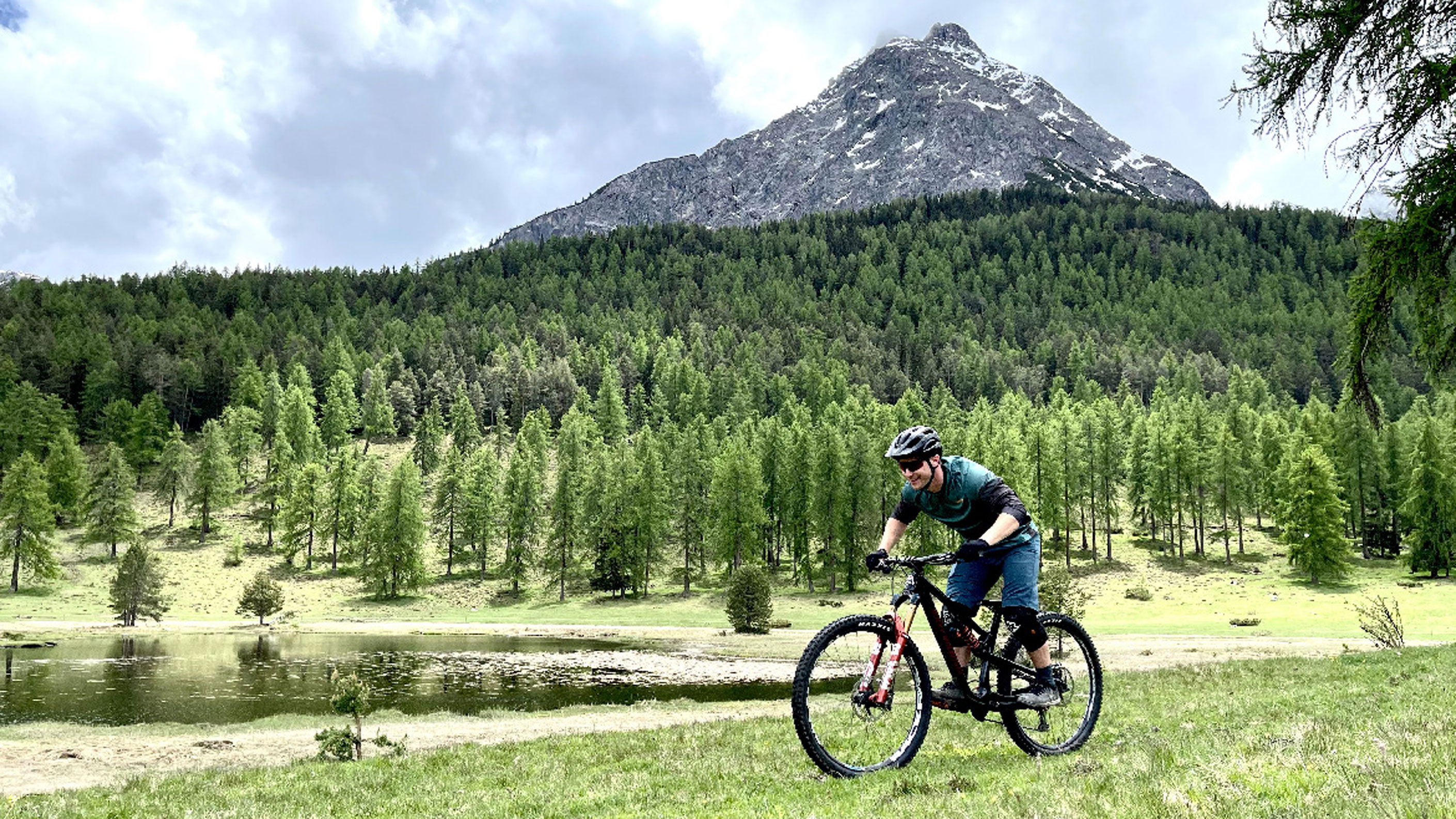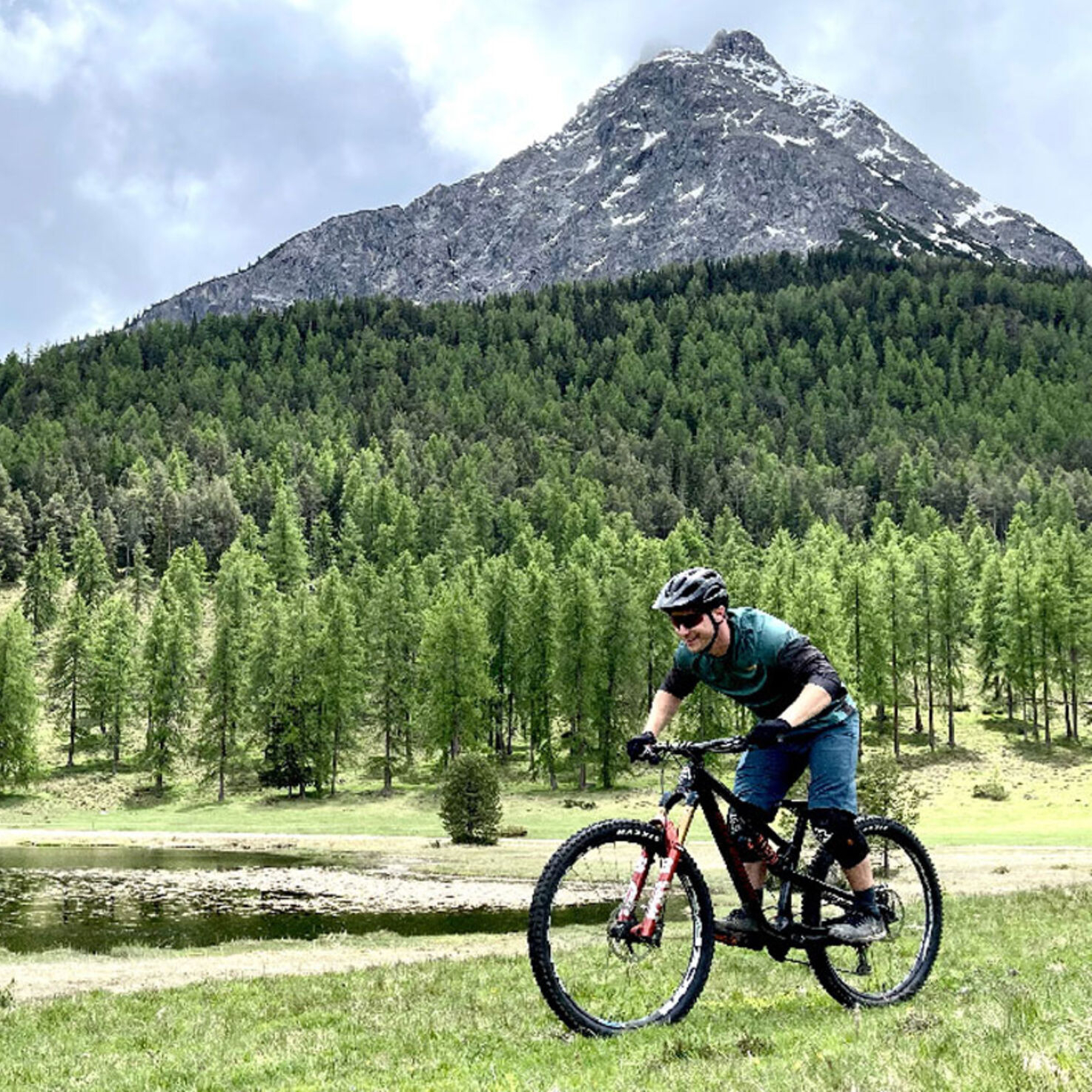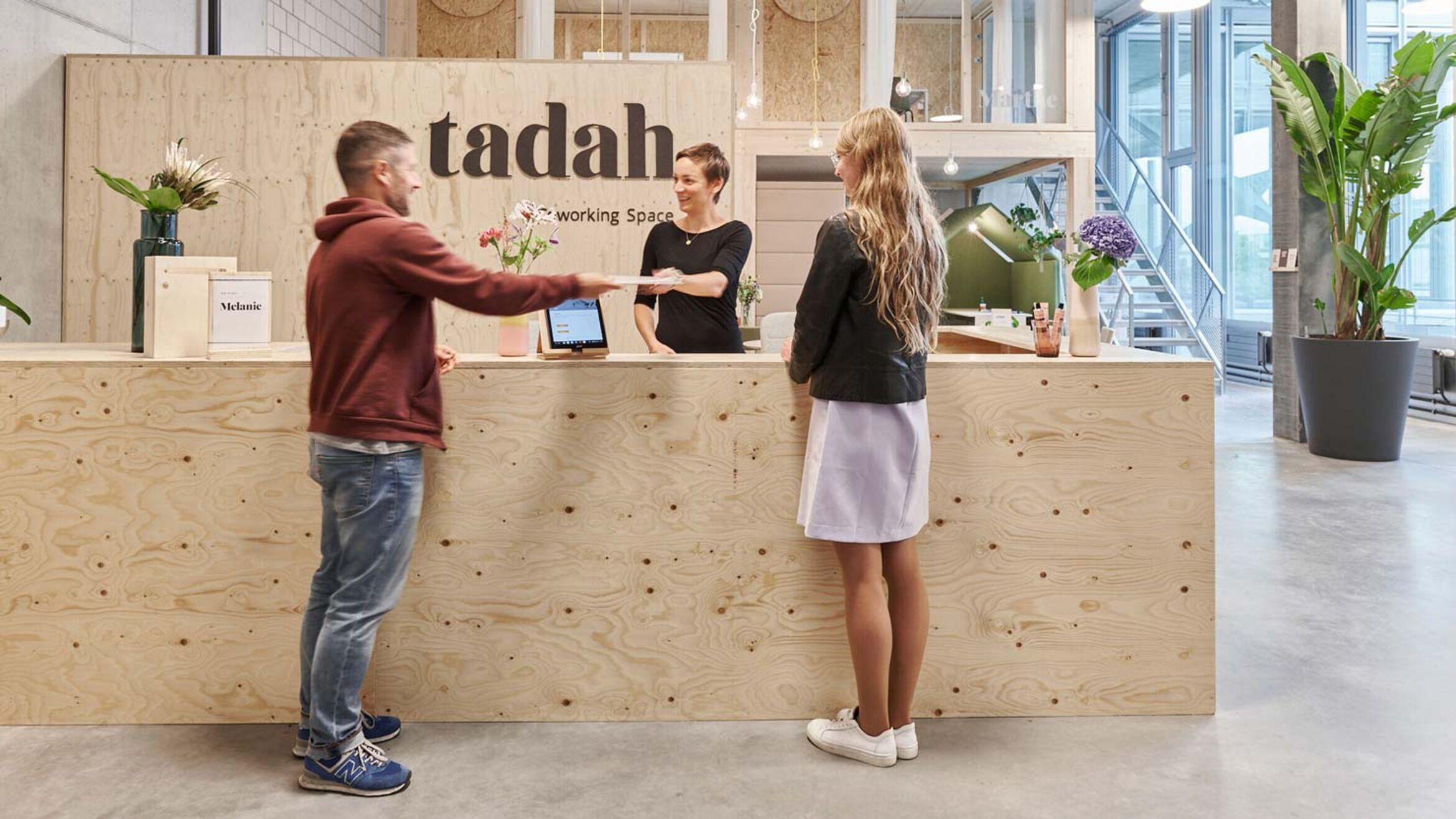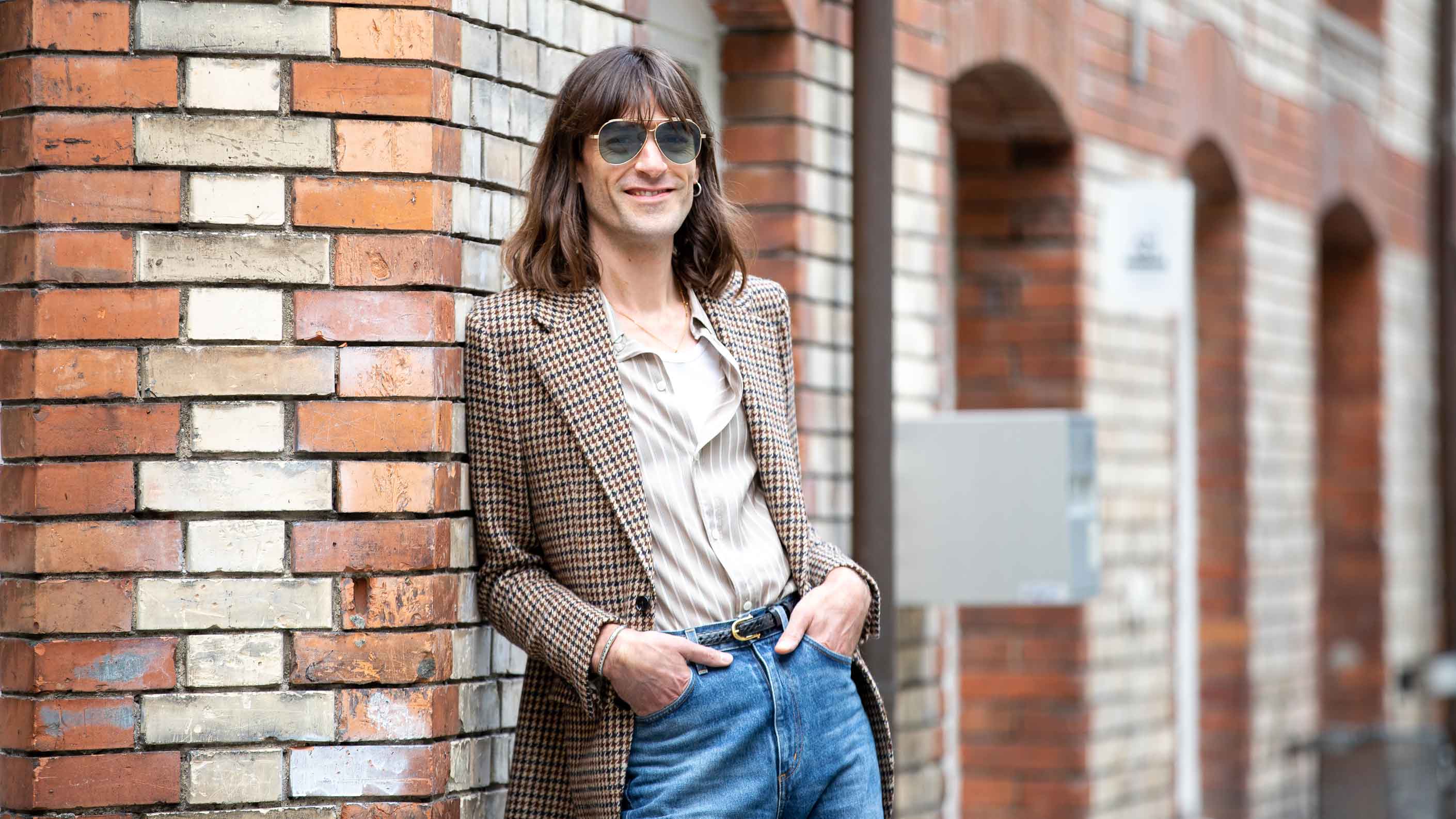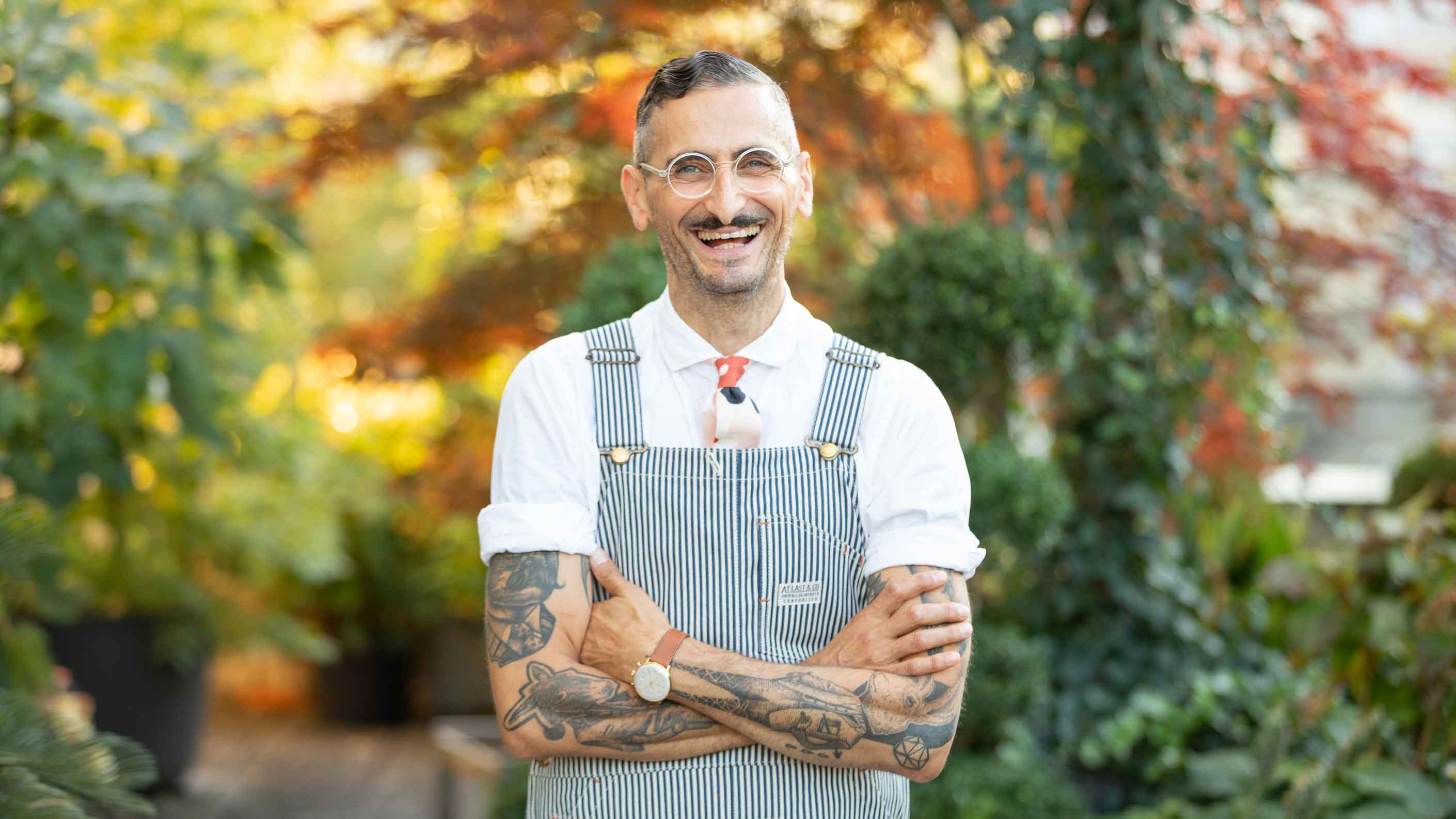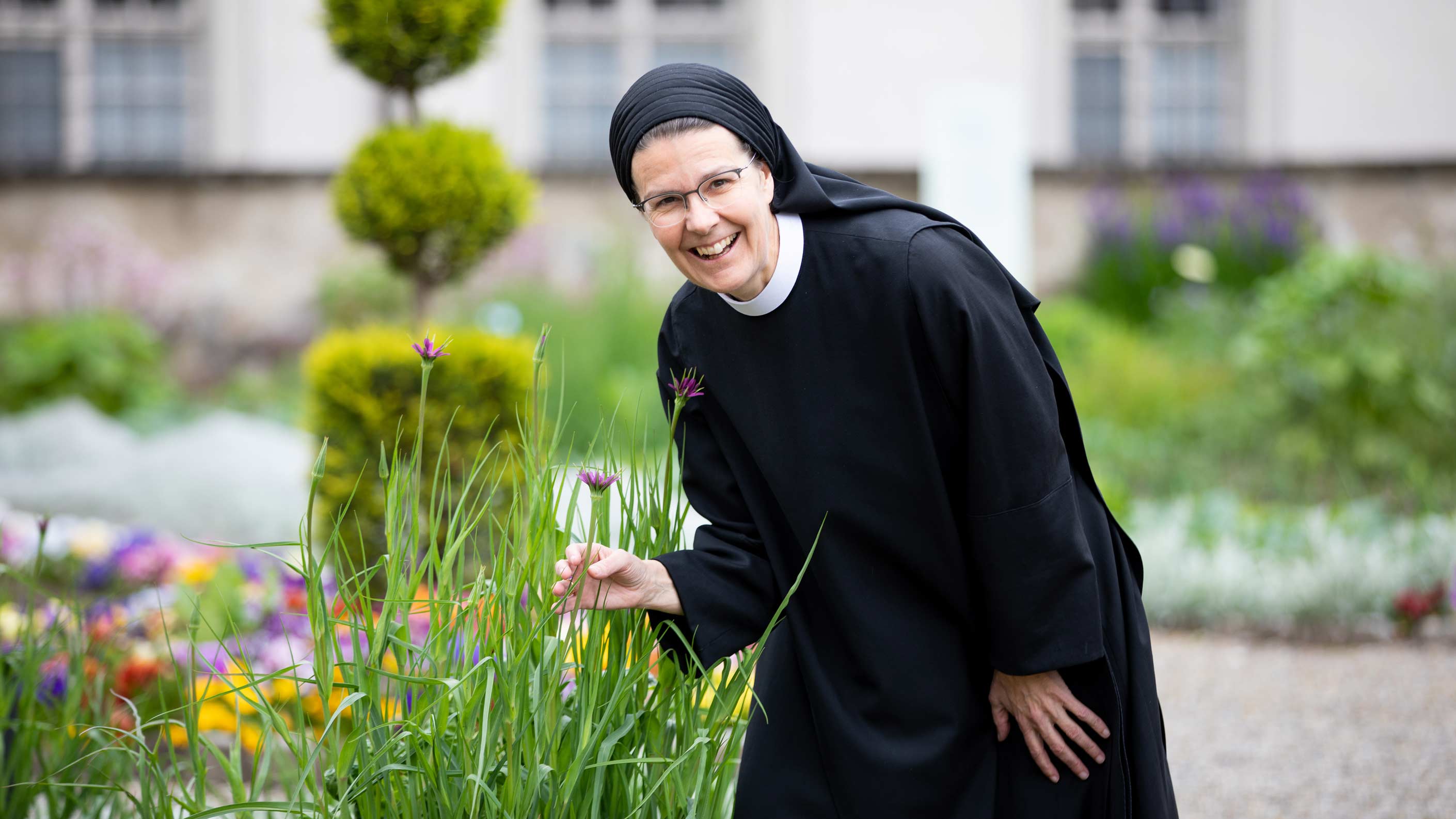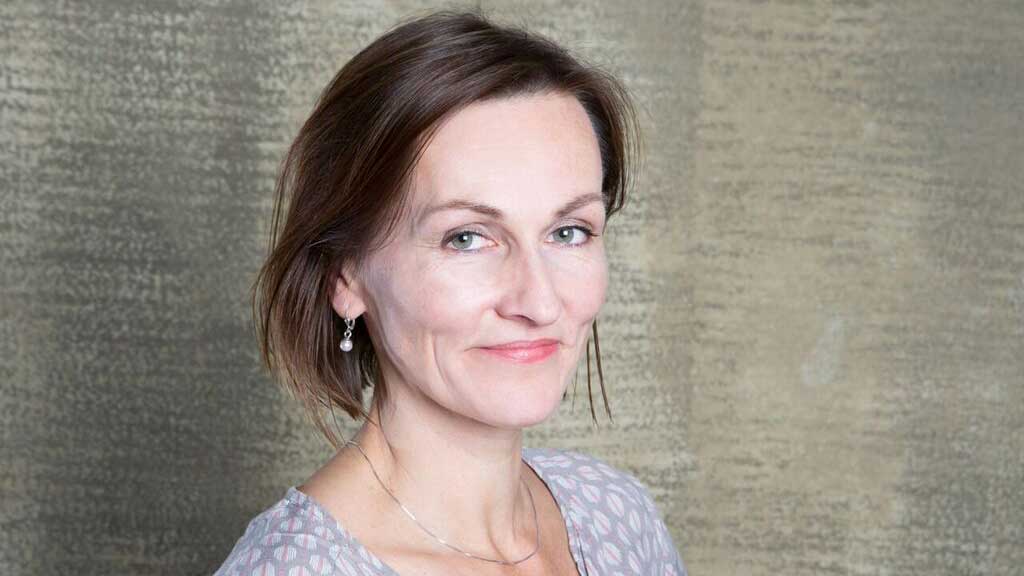People & Living | Parents We Love
Nevin Galmarini: Double victory with Olympic gold and twins
Nevin Galmarini is the reigning Olympic champion in snowboard parallel giant slalom. And although he doesn't live in Graubünden, his home is there, deep in his heart. How he manages his life between top sport, studies and family.
You are a Graubünden native through and through. But you didn't grow up in Graubünden, but in Herisau. How did you come to the Engadine?
When I was 13 years old, we moved to Ardez with the whole family. That was because my brother and I moved to Ftan to attend the sports high school. I spent the first part of my childhood in Herisau, but the much more important part I experienced in the Lower Engadine. That's why I feel completely Engadine.
What was it like for your parents and your sister?
Our parents wanted to give us the best possible education. And here we had the opportunity to combine school with sport. But it's not like it was a sacrifice for them. My father's job gave him the opportunity to work in the Engadine, and my sister was in kindergarten. We were here a lot on holiday, so it was really a move of the heart. We moved from a small town to a peripheral region - and it was absolutely perfect for us.
Did you settle in quickly?
I was very happy to move to the Engadine and immediately felt at home. But it was also special. I had to learn a new language. It took me two years until I could speak Romansh. So integration wasn't just easy. In the beginning, I had more contact with the "interns", that is, with the young people who were at home in the boarding school. This was despite the fact that I myself was an " extern ", because I lived here. After two years, my circle of colleagues shifted - I had arrived. Even though you can still hear in my terrible accent that I'm not originally from here.
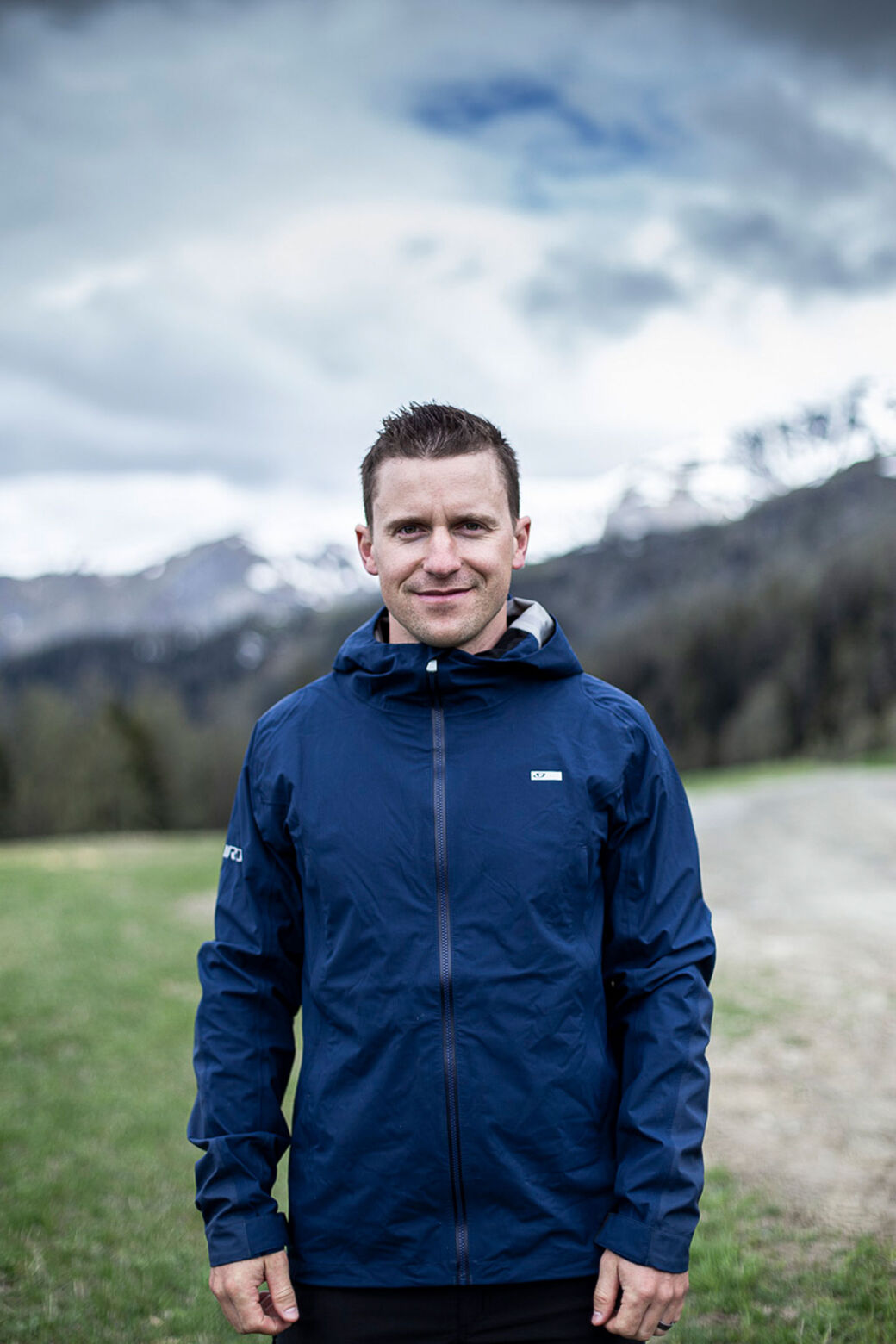
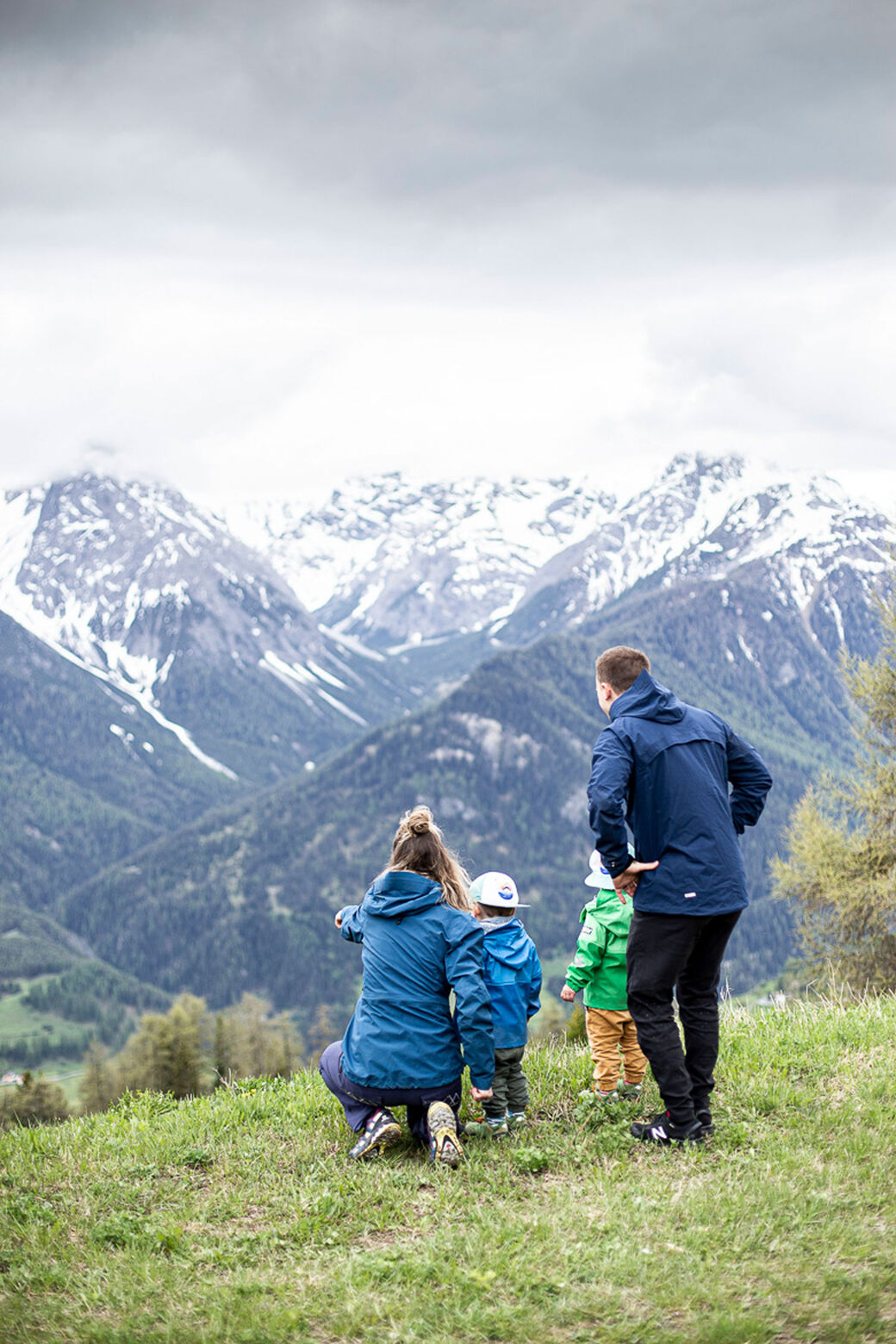
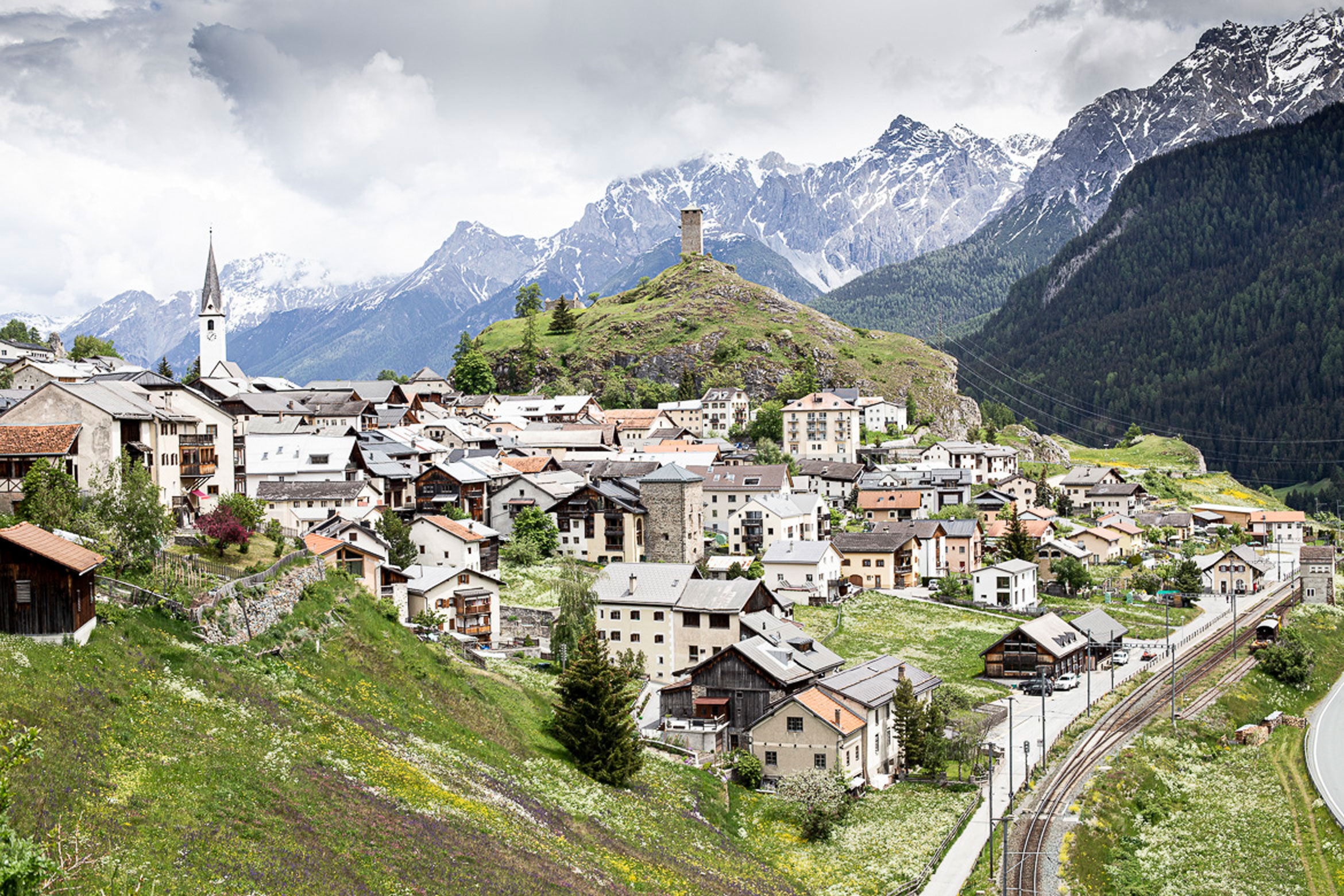
Romansh was the third language you learned - after German and sign language. Because your parents are both deaf. Tell me.
Exactly, my parents are deaf. So we communicated at home in sign language. But that was just normal for us. I didn't have to actively learn this language, but was given it along the way - like another child with a second language.
Was it restrictive for you to have deaf parents?
Not at all. The problem with the deaf is not actually not hearing. The biggest problem is that you are always excluded. Because we hearing people hear a lot of things on the sidelines, catch snippets of conversation. You can't do that as a deaf person, so integration is often difficult. Today I also try to give my children a little of this language to take with them on their way. And what is most important to us: I want to show them that it is important to have uncomplicated and uninhibited contact with all people.
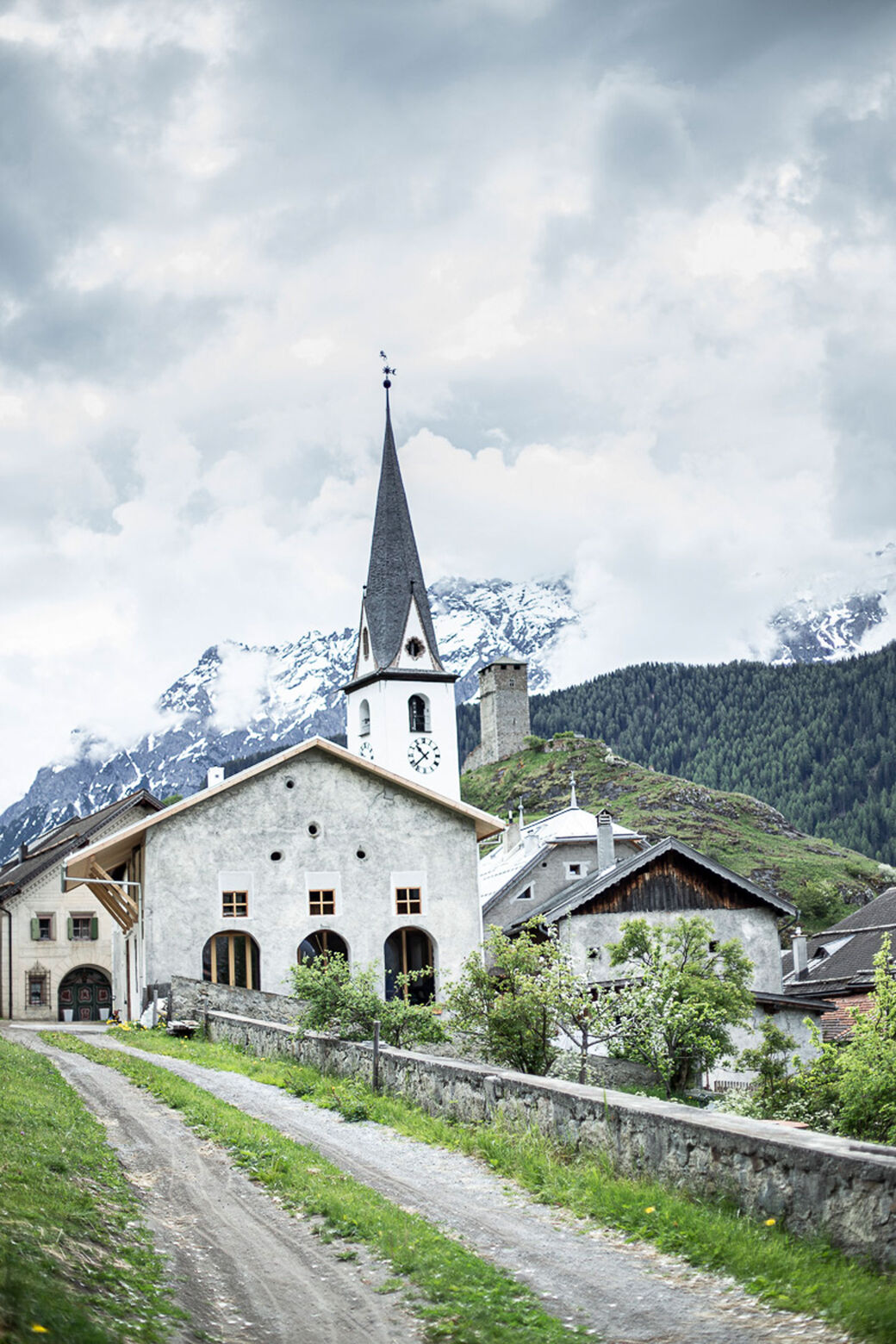
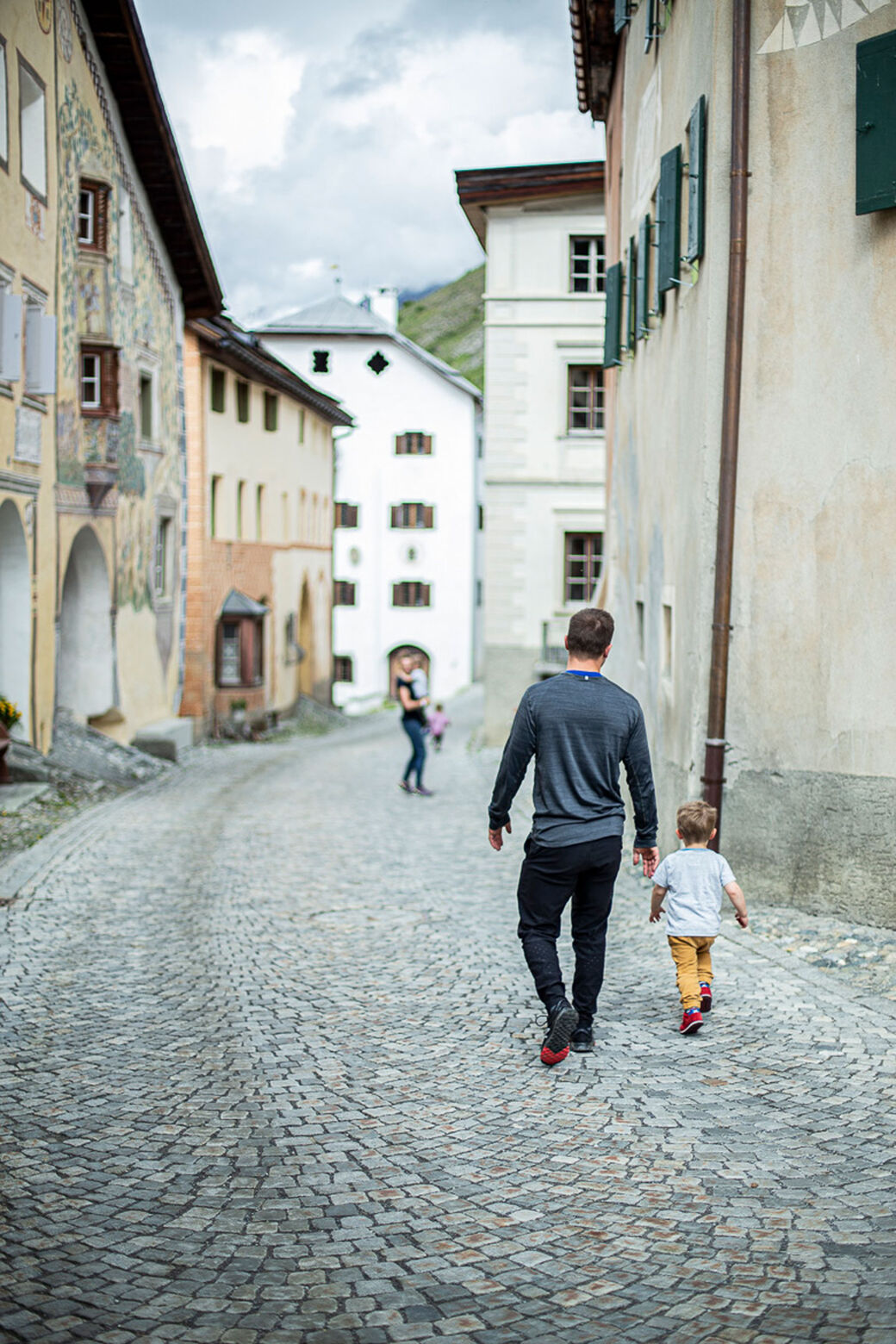
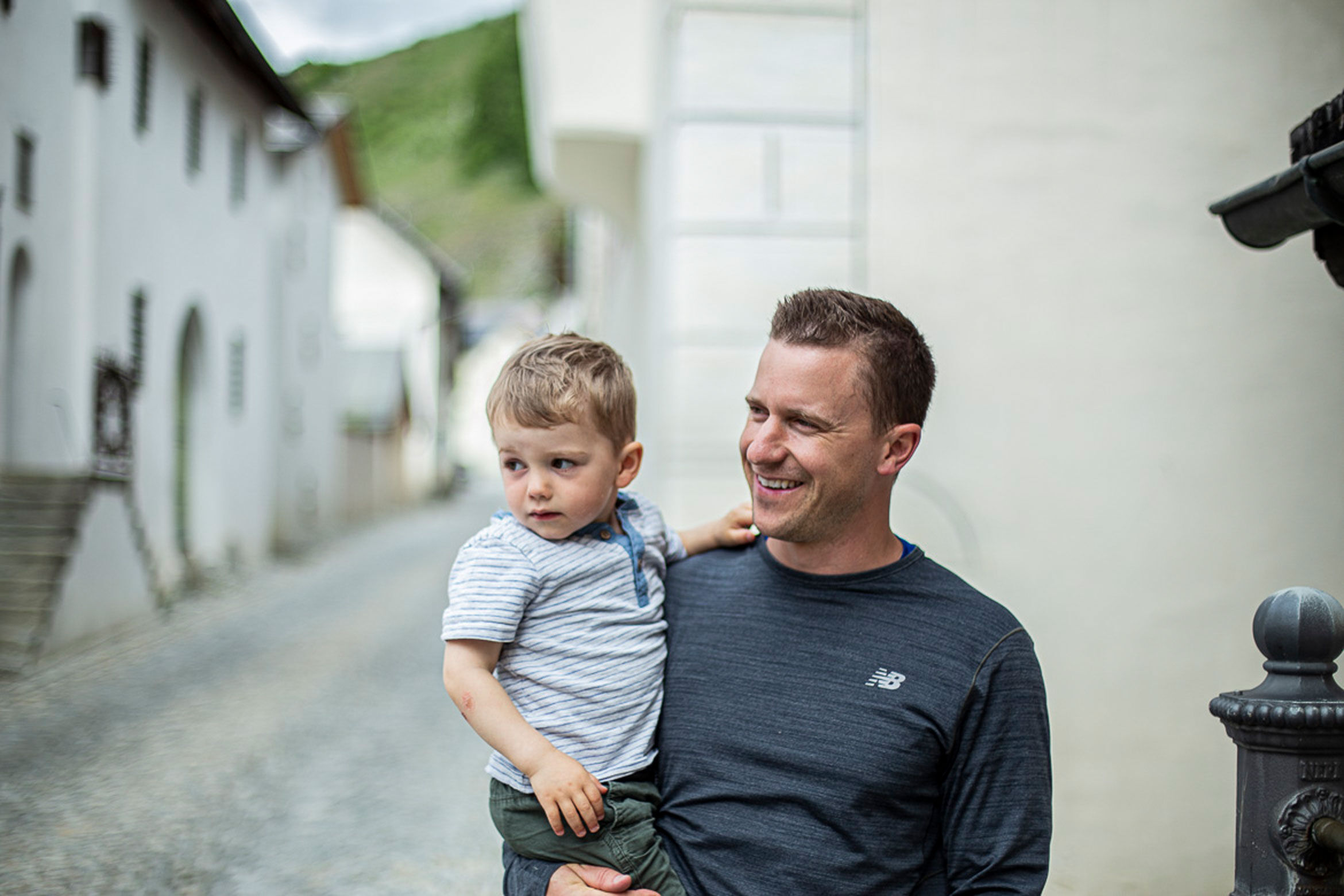
'When I drive over the Flüela Pass into the Engadine, it comes: the peace, the familiarity.'
Back to Graubünden: What do you particularly love it here?
It's difficult to put into words. When I'm here and get up in the morning, I know immediately: I am in the Engadine. I can smell it. It's this dry, clear air. And then there is this feeling. When I drive over the Flüela Pass into the Engadine, it comes: the peace, the familiarity.
Is there anything you don't like so much here?
The people are down-to-earth and decent - that's super cool. They are all role models for me in that respect. They are also content. In the mountains you sometimes have a little less, so you don't have endless choice. But you have exactly these mountains. They are there. They are always the same. I think that's where this contentment comes from. At the same time, people are not always quite so keen to experiment and open to new things. But that is also changing slowly but surely. Because many people who grew up here go to the lowlands for a while for study or career reasons. When they start a family, some move back home. They then bring the openness and understanding for a multicultural world back with them.
What does nature mean to you?
Everything. I lived in Zurich for a few years. And that was just right at the time. But I always knew that the city would not be mine forever. I need nature as a place to relax - for my mind. When I go biking, for example, I come back physically completely exhausted, but in my head I am completely refreshed. Sometimes I go on tours where I don't see a soul the whole day. It's wonderful that places like this still exist. Places of untouched nature, without mobile phone reception, without anything. It makes me feel so "real".
Do you try to live in harmony with nature?
For me, there are two levels in this discussion. The global and the regional. On the global level, I try to make my contribution. But I also think it's a big challenge. It's such a big, complex framework. For example, I fly halfway around the world for sport - but what am I supposed to do? It's a part of the game. I want to help, but sometimes I feel that everything you do is just a drop in the ocean. The regional level is easier. It is close - approachable. Every local here in the Engadine knows exactly: we have to find a mix. Tourism, for example, is important for the region. We are proud of the Engadine and like to show it off. Tourism is economically an important branch. But for this to work in the long term, we have to take care of the area. For example, game protection zones are needed. These are strictly adhered to. For us, this is a matter of course. We are all very networked here, we know each other - there is a lot of mutual respect. That is exactly what I want to pass on to my children: respect.
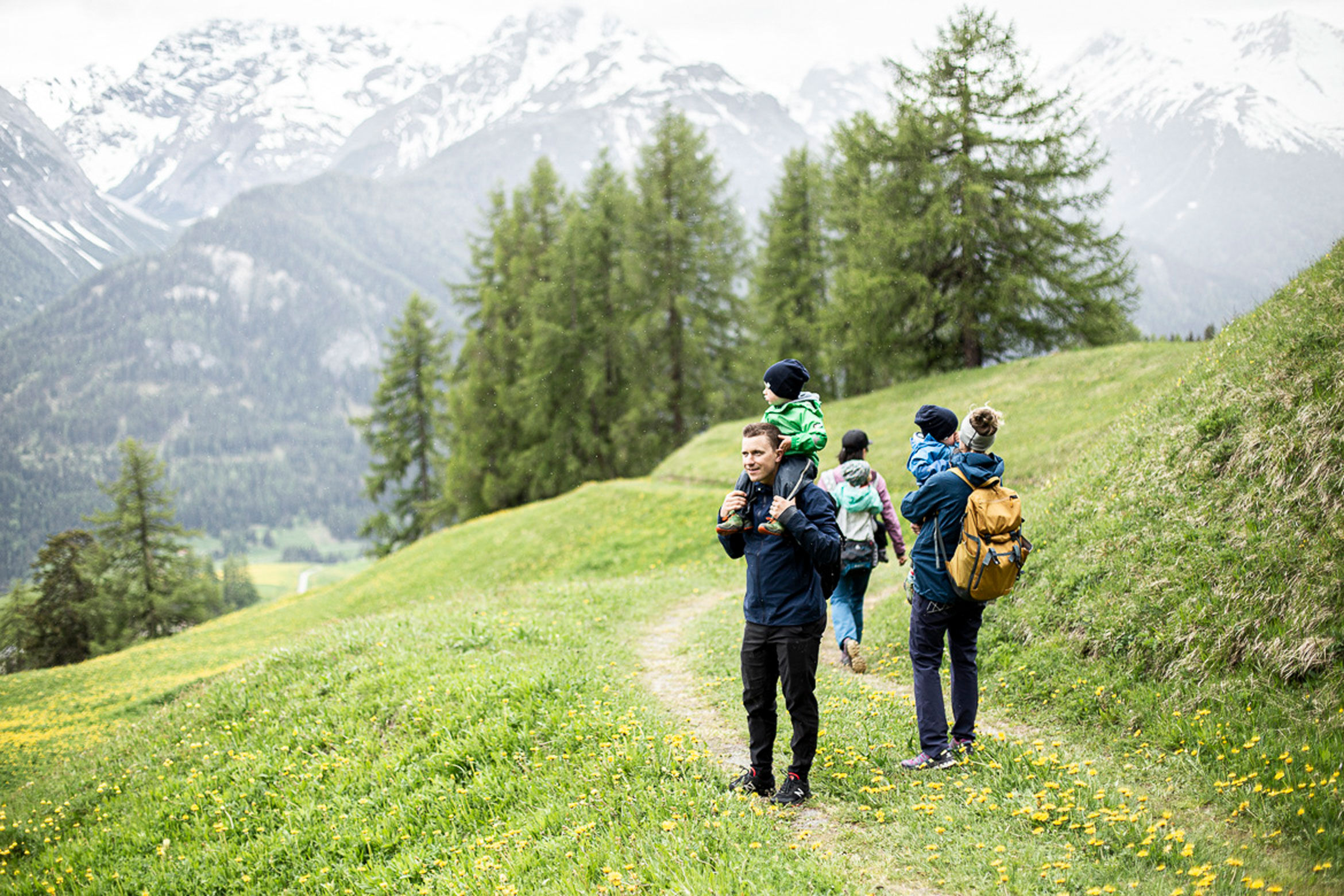
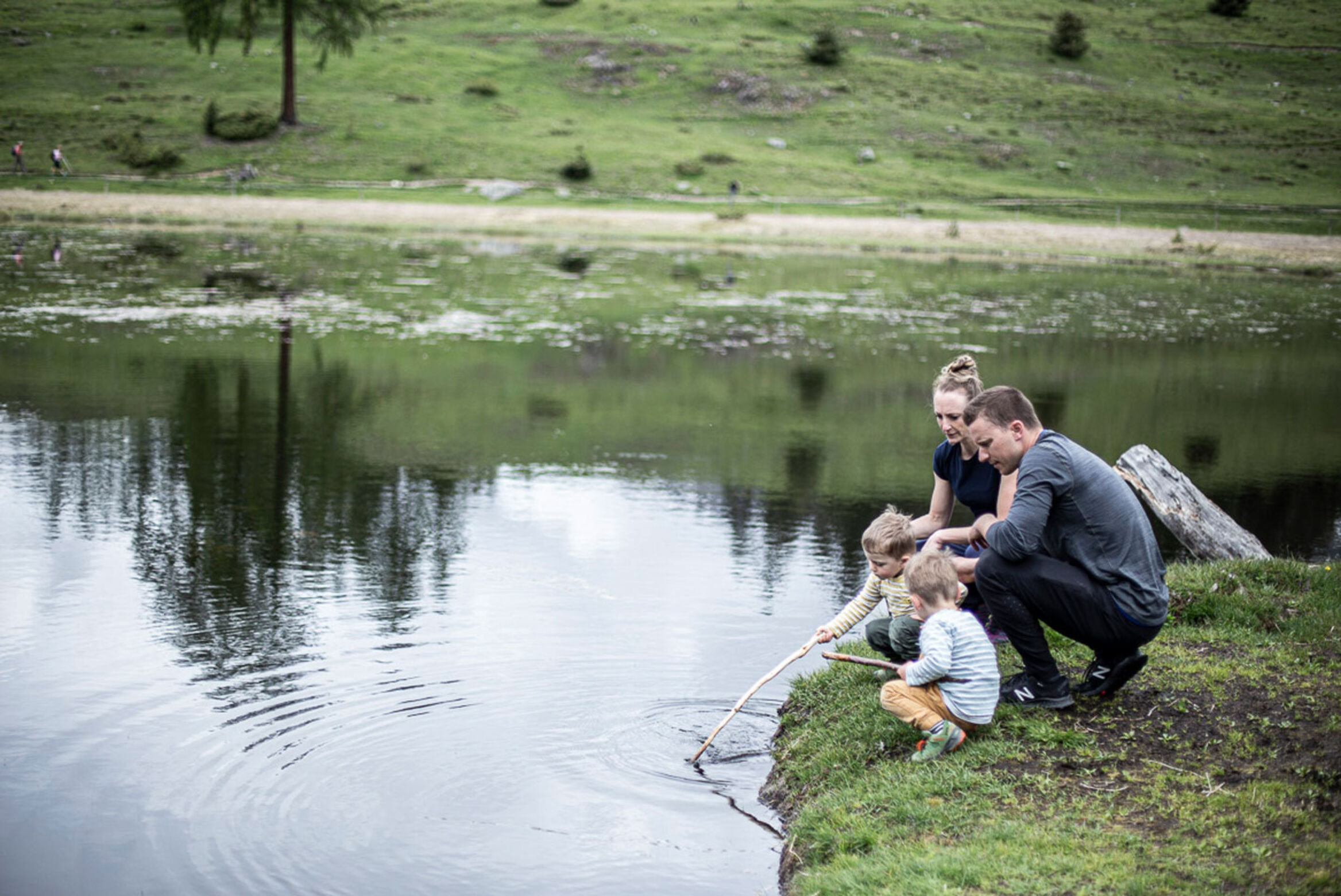
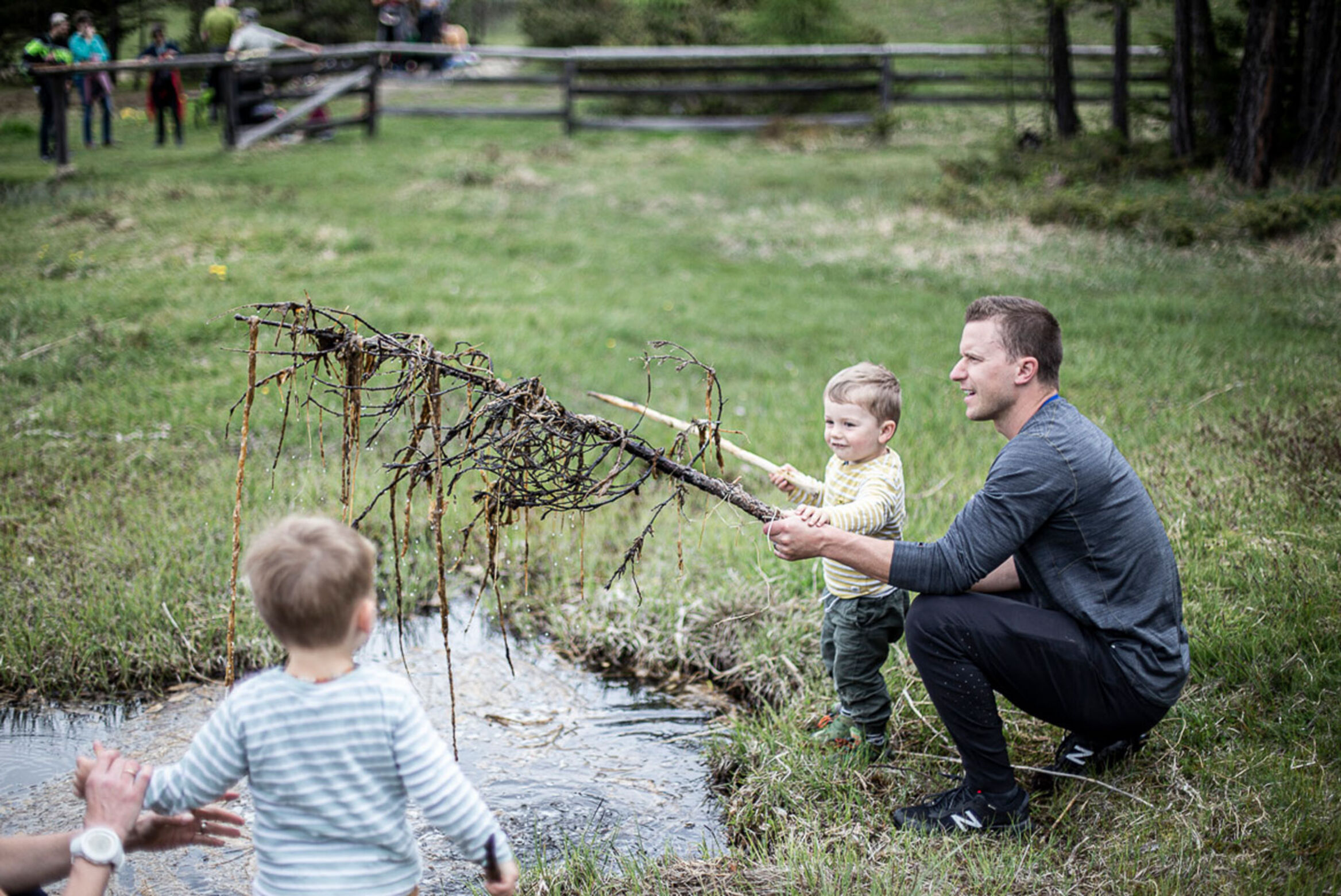
'I was in training and was sitting on the chairlift in Davos. All of a sudden Nadja calls and says: «There are two of them!»'
Together with your wife and your two children, you don't live in the Engadine, but in the canton of Solothurn. How come?
Nadja grew up here and is very well connected here. When we found out that we were going to be parents of twins, we had to think about how we would organise ourselves in the future. We lived in Zurich at the time. If it had been one child, we could have organised ourselves there or in the Engadine, but with twins? So we decided to move to Solothurn, right into the house next door to Nadja's parents. I travel a lot and find it very pleasant to know that Nadja is not alone. Nadja's parents both still work 100%, so they don't have a fixed day on which they look after the children. We share the care between us and in combination with the KiTa.
One child changes a life a lot, but when two come along at once, even more? How was it?
I remember exactly when I found out. I was in training and was sitting on the chairlift in Davos. My colleagues didn't know I was going to be a father. All of a sudden Nadja calls and says: "There are two of them! I couldn't let on and just said: "Ah yes, ok. I'll call you back." I was so happy. When I got to the top I got out, went a bit off into the deep snow and called her back. We were both so happy.
Have you always wanted children?
Nadja brought up the subject after a very short time in the relationship. I think that's right too. Because if someone knows that they absolutely want a family one day and it's not conceivable for the other person, then it becomes very difficult at some point and often leads to arguments and separation. But I also knew that I wanted to have children one day.
Kooperation
And then the moment came when you knew: It's time?
Yes and no. I simply had no idea about the whole thing. Somehow I had the idea that we would stop using contraception and she would get pregnant. But it wasn't like that. We tried for a long time, went to the doctor, got advice. When Nadja was finally pregnant, the pregnancy was considered a risk.
Why was that?
Nadja was 37, point number 1, and the fact that she was pregnant with twins was considered an additional risk. The doctor then told us to consider whether we wanted to reduce to one baby. Inwardly, however, it was clear to both of us that a reduction to one baby was out of the question, for us twins were a great happiness. But of course you think about it when a doctor says so.
What happened next?
For me it was important to check out the facts, to know what the real risk was. So we gathered information and it was clear to both of us: we're keeping both of them, we're taking this risk.
'Sure, it was always a disappointment when another month had passed and it hadn't worked out again.'
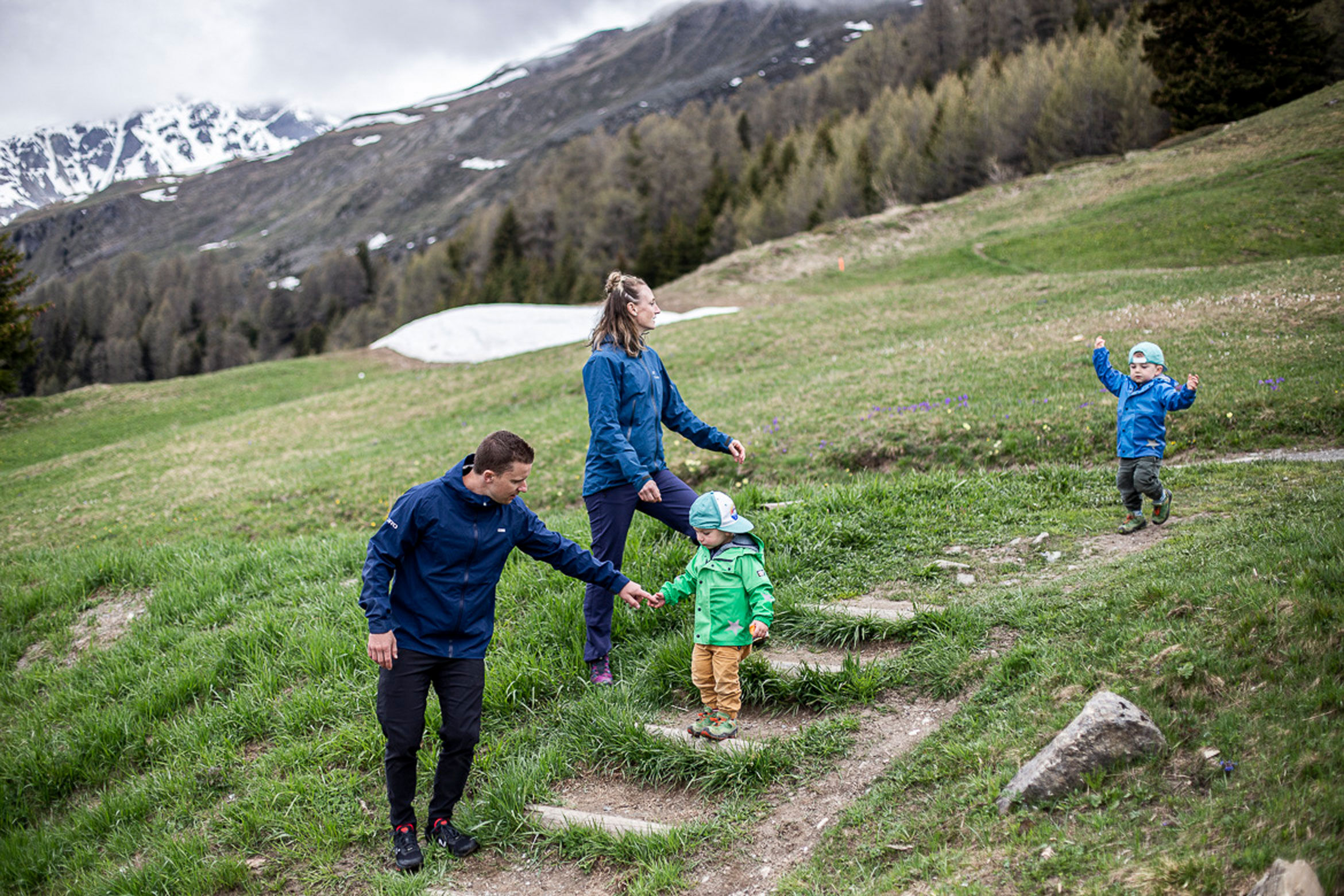
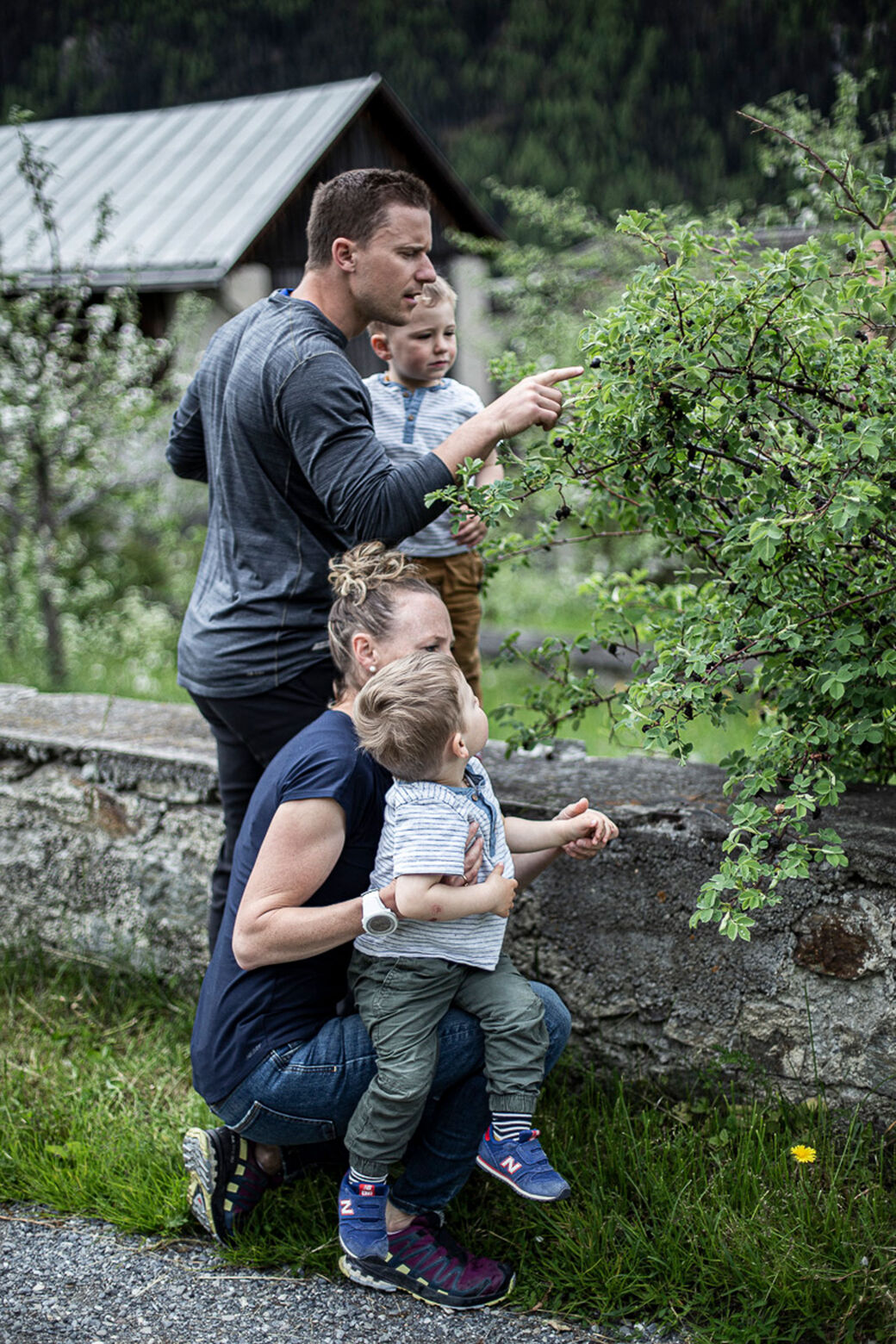

Was that a challenge for you as a couple - also the time when Nadja didn't get pregnant?
Of course, it was always a disappointment when another month passed and it didn't work out again. For me, the time when we would have children could have been later. But Nadja is five years older than me and she had this strong desire. And it was clear to me: I want to be with her. And if I want children, then with her. We got through it as a couple, it wasn't a burden on the relationship, it rather strengthened it.
A few months before the twins were born, you won Olympic gold. How did you experience the Olympics?
My focus was 100% on the Olympic Games. I am an absolutely egoistic athlete. Nadja met me like that and she worked in the sports world, so she knows what it's like. The fact that she was pregnant and I wasn't at home didn't bother me or her. Rather the opposite was the case. Because I knew: after this big event, my life would get an additional focus.
So the thought of becoming a father calmed you down?
The Olympics are a lot of pressure. You train for months, even years, for this one competition. And you ask yourself: What do people think? What do the sponsors think? What does the press write? But at the same time, when you know you're going to be a father, it all becomes a little less important. I don't mean to say that I was less ambitious - far from it. But the absolute peak of pressure and nervousness decreases.
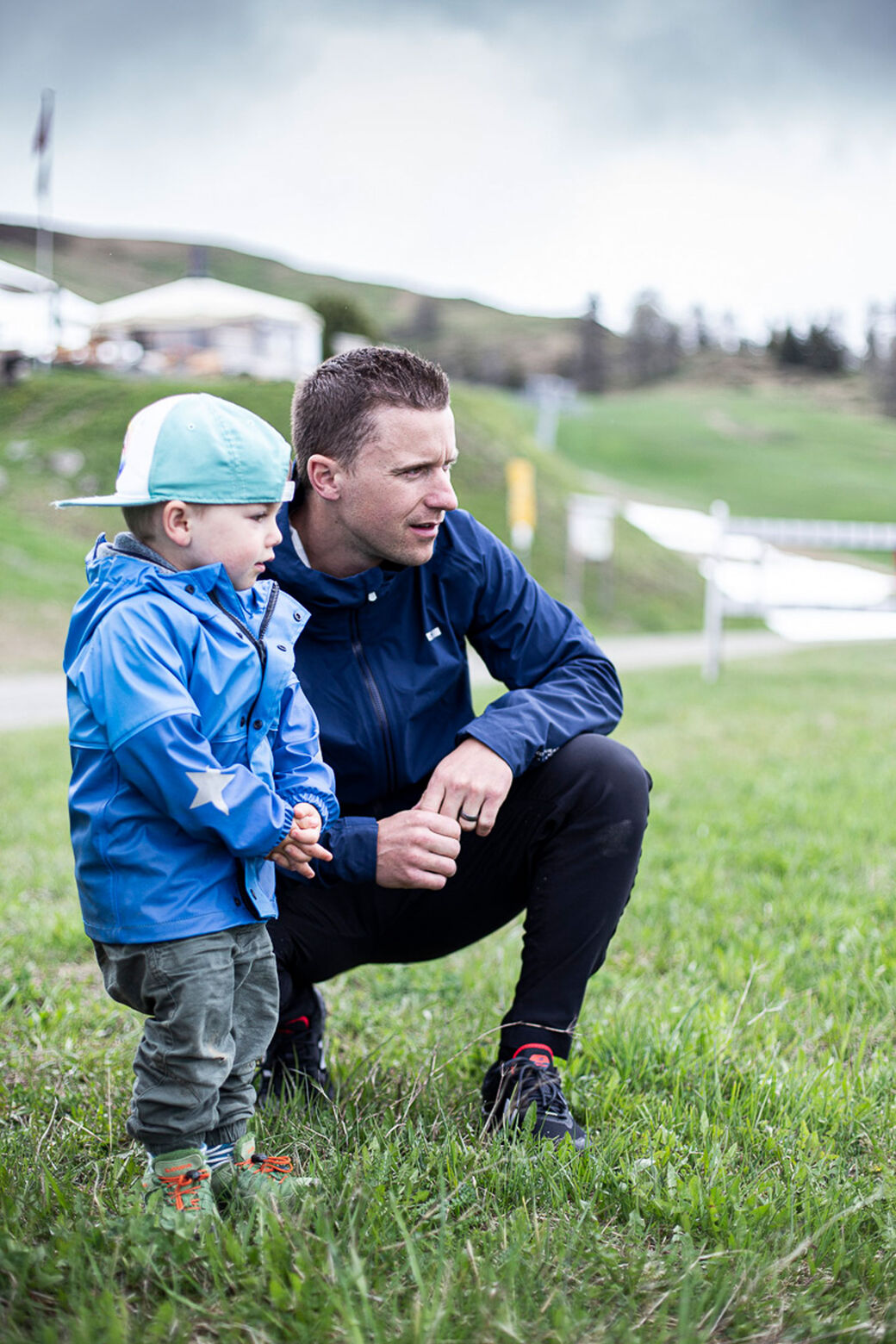
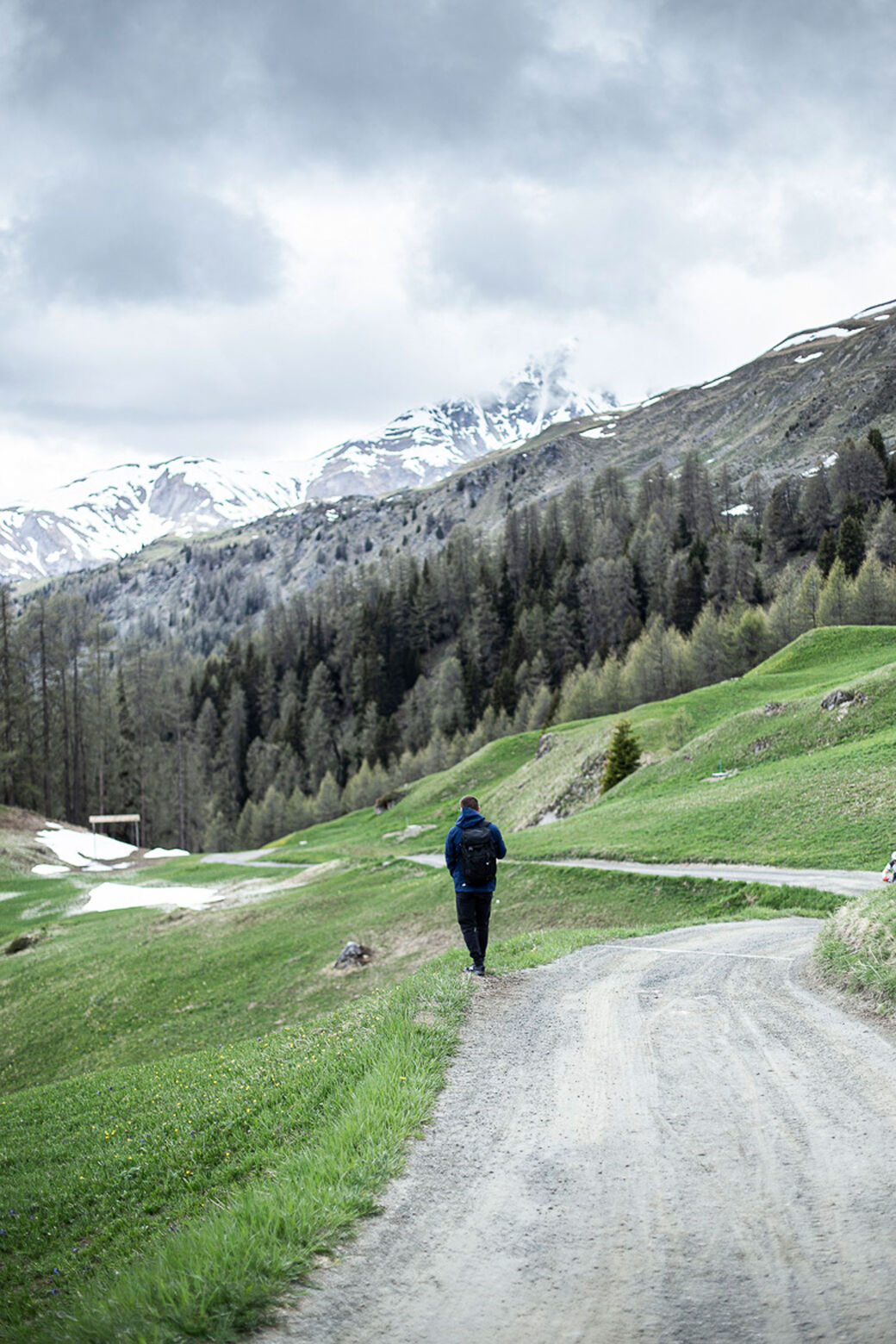
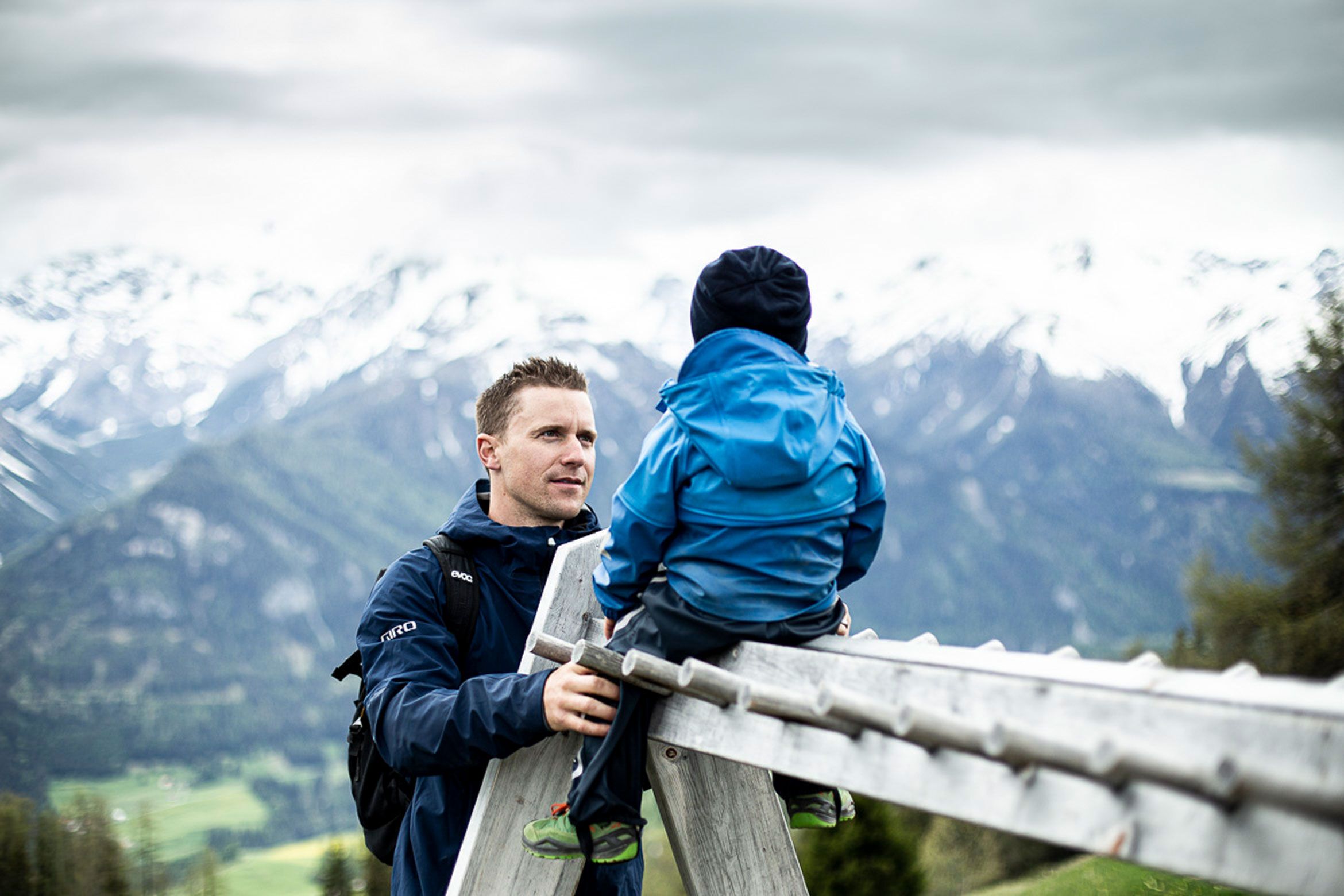
'I don't want to force anything on my children. But I want to show them that many things are possible in life if you want them to be.'
You have won Olympic silver and gold medals, a bronze medal at the World Championships and have celebrated several successes in the World Cup. Nevertheless, you say about yourself that you are not talented. Why is that?
Talent is a tricky thing. When I talk to young athletes, I always say: Forget about talent. The question is: Do you have joy and do you have a goal? And yes it's true, I always felt I wasn't that talented. I didn't stand a chance in the children's and youth categories. It was only at the end of the Sportgymi that I was in the top three or four. What did I learn from that? That I am good and get better when I train. At the end of the day, only the best are at the top of the world. Then it's how you work and how you improve that makes the difference.
So it takes discipline. Is that also something you want to teach your children?
I don't want to impose anything on my children. But I want to show them that a lot is possible in life if you want it. That you can achieve almost anything if you are willing to work for it. For example, I'm only 1.71 metres tall - not an ideal height for a snowboarder. But if I had always listened to the others who said it wasn't possible, I wouldn't be where I am today.
What do you take from the sports world to the family world?
As an athlete, you learn to continue to function in pressure situations with stress. You learn to go into a meta-level. When I'm very nervous, for example, I can analyse very well why I react the way I do. Then I know what tools I have to bring myself down. There are also many stressful situations with the children. I can then use this mental control very well.
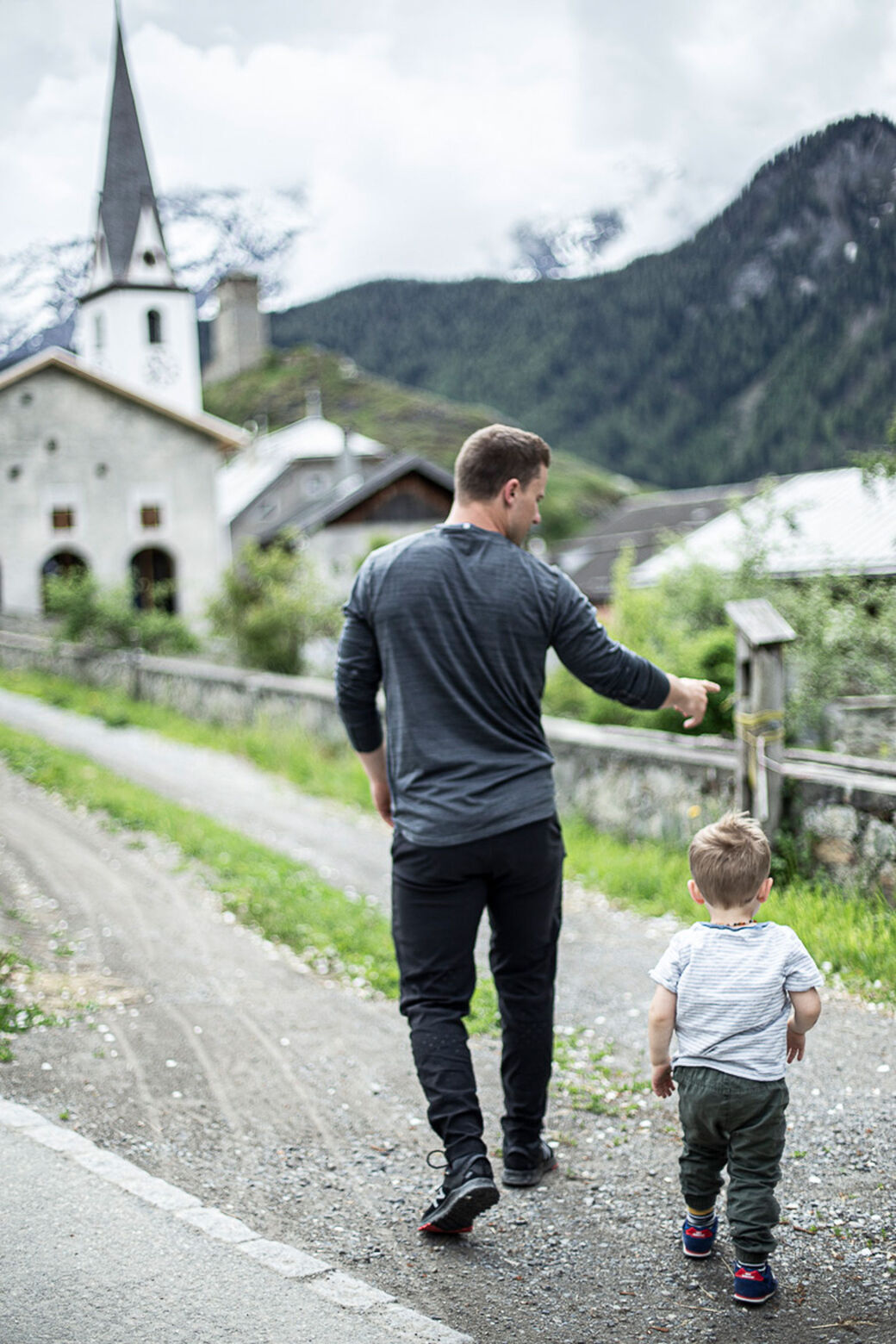
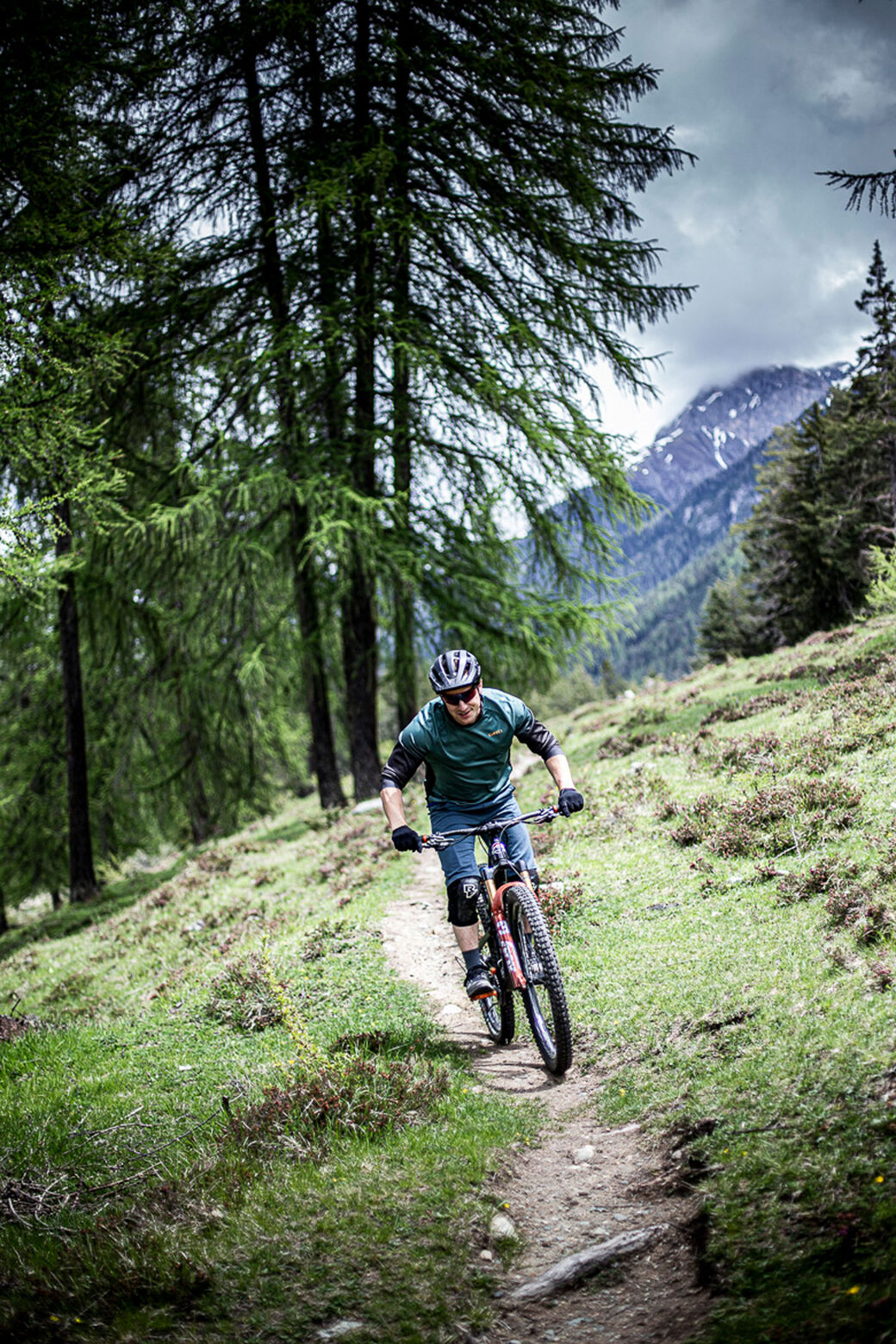
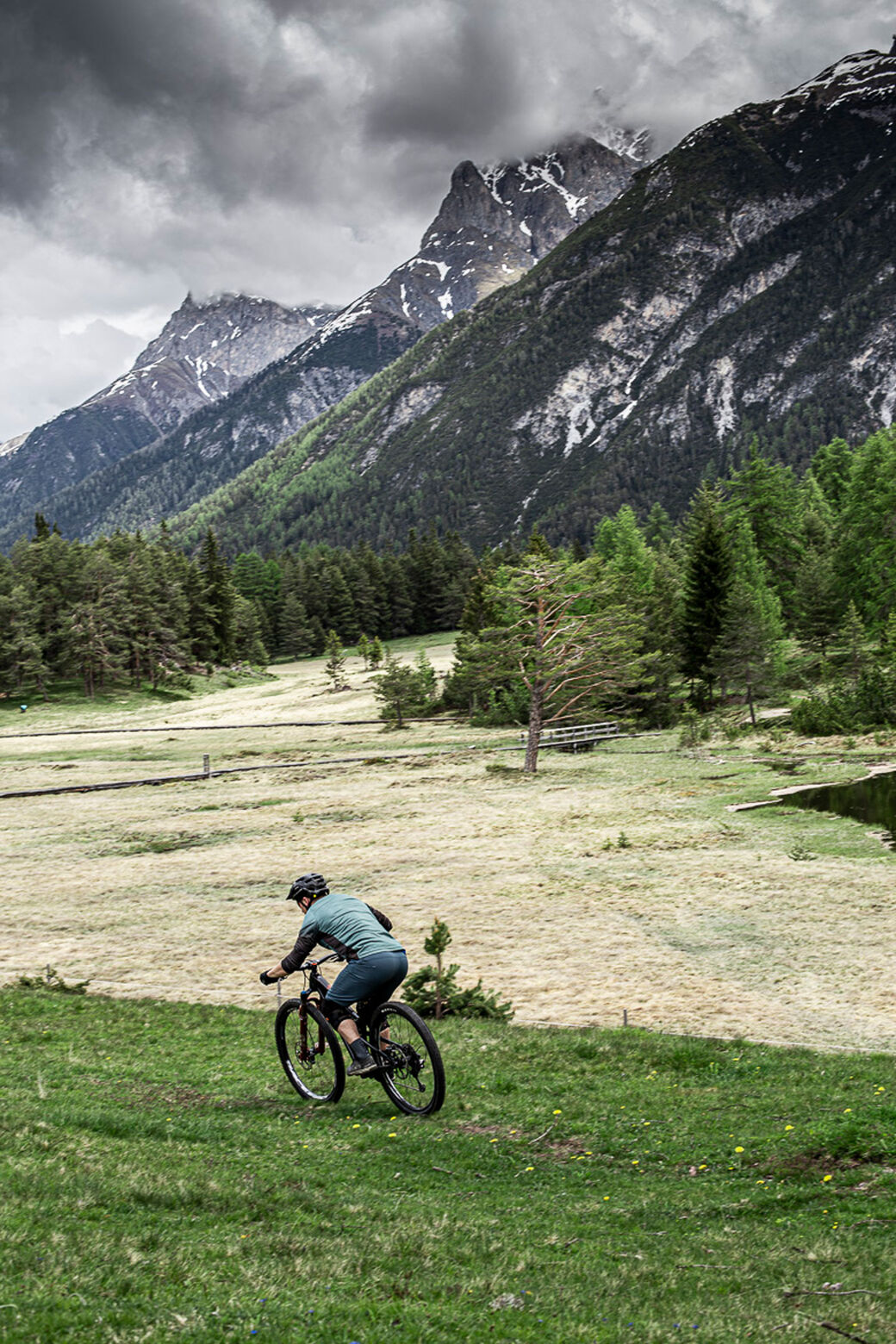
After the twins were born, you hurt yourself. Did that also cause you to fear for your job?
No. Because on the one hand I have and have always had good sponsors. And on the other hand, I'm not afraid of a second career. At some point I'll stop snowboarding - sooner than in ten years. Besides my career as an athlete, I'm studying economics. At the time of the injury, I already had my bachelor's degree in my pocket. I have an optimistic nature. I knew that I would find something I enjoy doing besides sport.
What are the upcoming milestones for Nevin?
In terms of sport, it's clearly the winter of 2022 and the Olympic Games that will take place then. I want to defend my gold medal there. That is my very clear goal.
At the same time, I have to hand in my Master's thesis in December to obtain my Master of Science in Business Administration with a specialisation in Innovation Management.
And in the long term?
I would very much like to work in the sports sector. But I don't want to be a coach. I don't want to continue my athlete life as a coach. But there are so many opportunities in management, development, digitalisation in connection with sport. I have a big and good network in the sports world. And I like the vibe there. I'm really looking forward to it. And I feel it's a huge gift to be able to start a second career.
